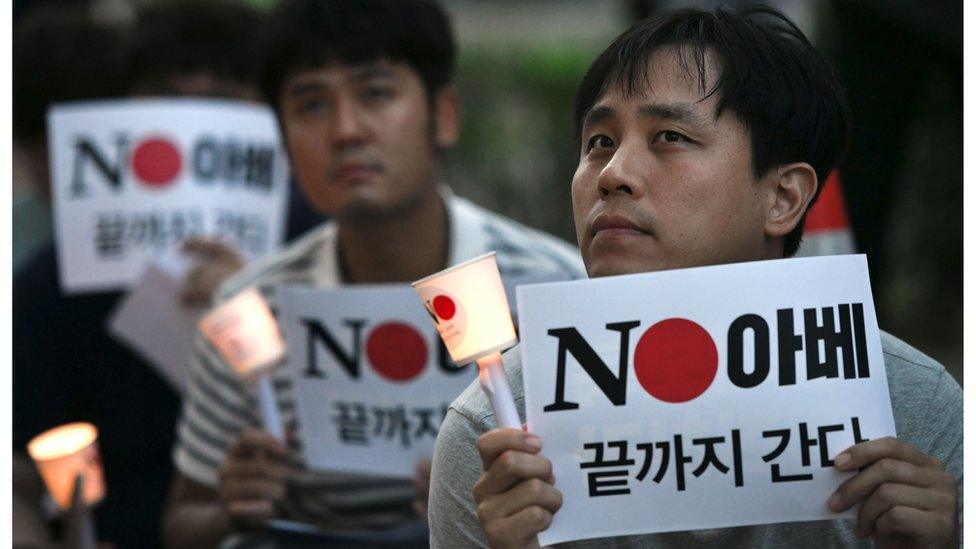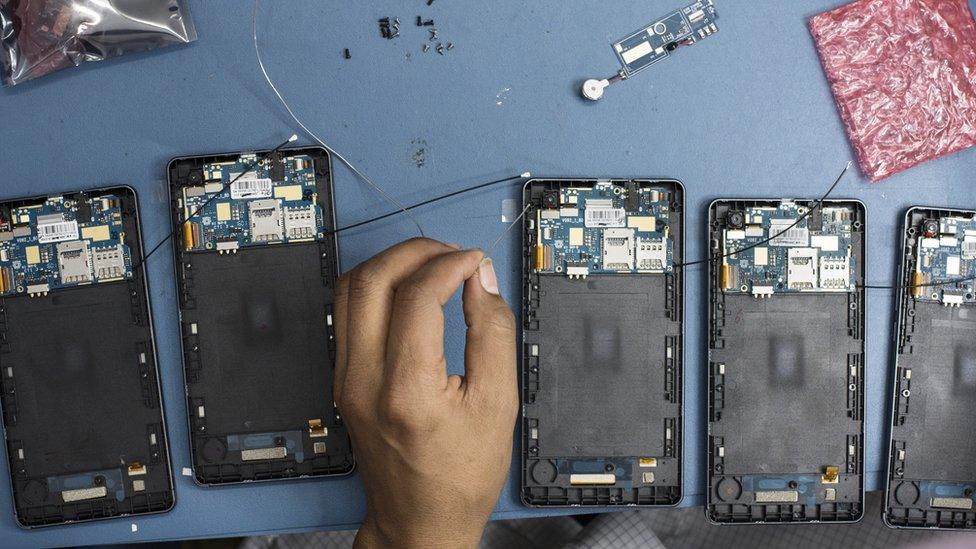Japan car sales slump in South Korea as trade row escalates
- Published
A man smashed up his Japanese-made car in protest at the trade dispute
Sales of Japanese cars in South Korea fell sharply last month as a bitter trade row been the two countries provoked a consumer backlash.
Industry data showed Toyota sales plunged 32% from a year earlier, while Honda's sales slid 34%.
South Koreans have been boycotting Japanese goods after Tokyo tightened export curbs on the country in July.
The dispute escalated last week when Japan said it would drop South Korea from its trusted trade partner list.
The move to strike South Korea from the so-called "white list" was met with anger and threats of retaliation.
Tokyo had already tightened controls on key exports to South Korea, sparking fears over risks to the global electronics sector.
On Monday, the South Korean government outlined plans to invest around $6.5bn (£5.3bn) to try to develop products and materials which it currently buys from Japan.
"We want to turn the crisis into an opportunity for the materials, parts and equipment industry," South Korea's industry minister Sung Yun-mo told reporters.
However the moves - which Tokyo has said are based on national security concerns - have prompted South Koreans to boycott Japanese products and services including cars, beer and tourist trips.
"Showroom visits are declining while consumers are holding off on signing contracts," a Honda Korea official told Reuters, after the release of the July sales data from the Korea Automobile Importers & Distributors Association.
How did the trade row begin?
The trade spat has been fuelled by diplomatic tensions over compensation for wartime labour.
Last year, South Korean court rulings ordering Japanese firms to pay compensation to Koreans over forced wartime labour inflamed long-running tensions.
The decisions drew condemnation from Japan, which argues the dispute was settled in 1965 when diplomatic ties were normalised between the neighbouring countries.
- Published2 August 2019

- Published23 July 2019
